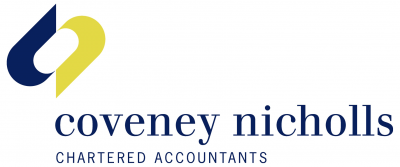Running a small business brings its own set of challenges, and navigating the intricate world of taxes is one of them. However, we have the solution.
By implementing effective tax planning strategies, you can pave the way for financial success and provide your business with the flexibility it needs to thrive.
Selecting the right structure for your business
The foundation of a solid tax plan begins with choosing the right business structure. If you’re a sole trader, your focus should be on crafting a robust income tax strategy. Maximising business expenses and capital allowances can be instrumental in chipping away at your income tax bill.
For those who opt for a limited company, a world of corporate tax planning opportunities opens up. Consider the flexibility of taking a wage through a combination of salary and dividends as a director. The distinct tax rates for these payment methods make this approach a cost-effective way of compensating yourself.
Claiming expenses
A crucial element of any effective tax planning strategy is making the most of your business expenses. If you’re self-employed, ensure you deduct allowable business expenses against your taxable income in your self-assessment tax return. Limited companies, on the other hand, can claim allowable expenses on their corporation tax returns.
Having a qualified bookkeeper by your side can make all the difference. By meticulously accounting for all your business transactions, you can maximise your claims and keep your tax liabilities in check.
Managing VAT in your business finances
If your business is VAT-registered, leverage VAT accounting to your advantage. Holding onto your VAT income for a brief period before filing your quarterly returns can provide a much-needed boost to your cashflow.
While VAT matters can be complex, VAT accountants can guide you through the system, ensuring you meet your obligations while accessing extra cash when it matters most.
Leveraging tax incentives
Capital allowances
The strategic use of capital allowances is another useful tool for reducing tax liabilities. Take advantage of the annual investment allowance to deduct the full value of qualifying plant and machinery from your profits before tax.
For UK companies, the new full expensing scheme allows you to claim back 100% of qualifying plant and machinery costs from 1 April 2023 onwards.
Pensions contributions
Contributing to your pension fund is not just a smart financial move; it’s also a tax-efficient one. As long as you stay within the annual allowance, your pension contributions are entirely tax-free. If you run payroll as an employer, you can even claim employee pension contributions as an allowable business expense.
Research & Development (R&D)
For limited companies engaged in innovative projects, the SME R&D scheme can be a game-changer. Claim the costs of qualifying projects against your taxable profits, and in the event of a loss, you can even claim a payable tax credit.
If your activities meet the eligibility criteria, this opens up a significant avenue for reducing your corporation tax bill.
Getting to grips with your tax obligations
To create a robust tax planning strategy, a deep understanding of your tax liabilities and obligations to HMRC is essential. As corporate tax accountants, we specialise in devising strategies to maximise tax savings for your limited company. Our services also extend to personal tax planning, ensuring you effectively manage your income tax liabilities.
Count on us to keep you informed about any changes in tax legislation that could impact your small business. Your financial success is our priority.
Ready to set yourself up for success? Contact us today to discuss personalised tax planning strategies tailored to your small business’s unique needs.

